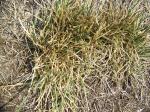COLUMBIA, Mo.–Is pasture insurance right for your farm? The answer could be yes, no or maybe.
University of Missouri Extension recently launched an online tool that can help farmers decide if purchasing pasture, range and forage (PRF) insurance makes sense for their operation.
MU Extension agricultural economist Ray Massey says that unlike most crop insurance, PRF is based on rainfall rather than yield.
“It is hard to understand what the yield is on pasture,” Massey says. “You put cows out there and you take cows off. You don’t normally take off grass unless you’re haying it.”
MU’s online tool provides the same daily estimates from the National Weather Service that the USDA Risk Management Agency uses to determine accumulated rainfall over a two-month period. However, it also lets producers break down rainfall by day and amount, while RMA only presents a monthly percentage index. Massey says daily information will help farmers see the correlation between what the RMA is paying insurance on and what is happening on their farm.
NWS rainfall estimates are divided among grid squares measuring approximately 15 miles per side. When rainfall is below the insured level in a square, an indemnity will be paid based on how much insurance coverage was purchased for that month for land within that square.
Because rainfall can vary greatly within a square, the NWS estimate might not match the amount of rainfall an individual farmer receives.
“We’re hoping farmers will keep track throughout the growing season and come to understand how the insurance works,” Massey says. “So on Nov. 15, 2014, when farmers can sign up for 2015 insurance, they will be able to make a decision on whether or not to purchase PRF.”
To access the PRF module, sign up at http://agebb.missouri.edu/horizonpoint/. You will need to provide an email address, street address, and the latitude and longitude of your farm. Complete instructions and additional information is at http://crops.missouri.edu/insurance/prfinsurance.htm.
Read more http://extension.missouri.edu/news/DisplayStory.aspx?N=2240





